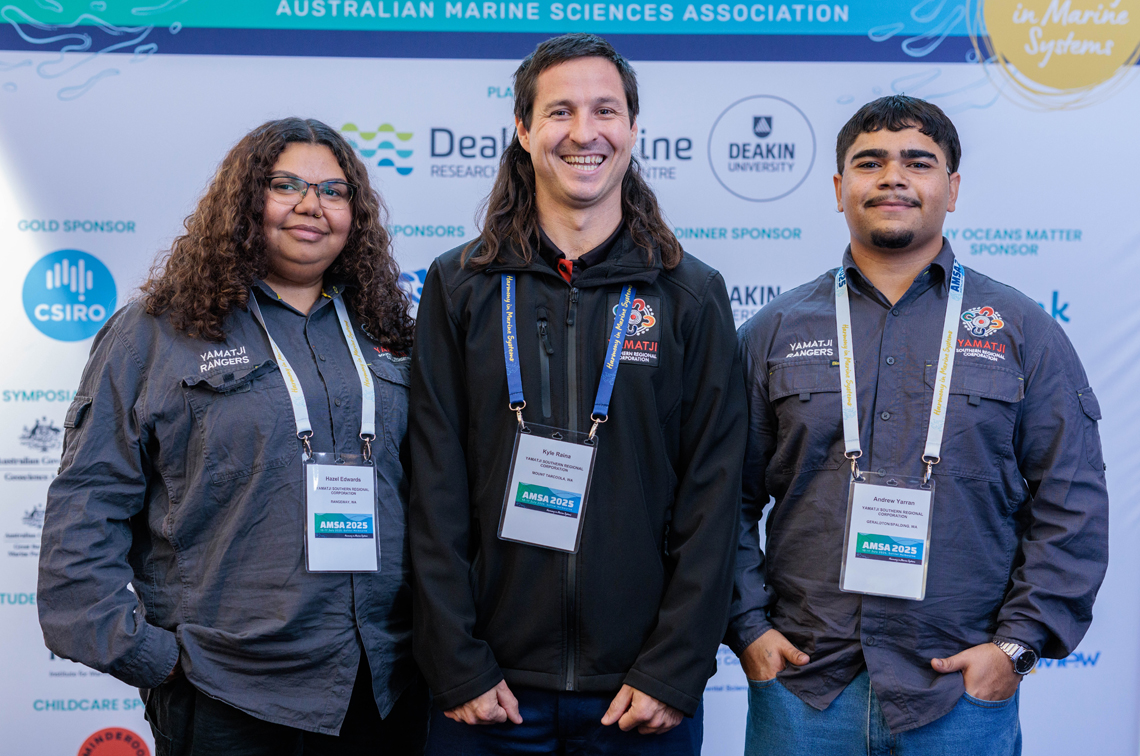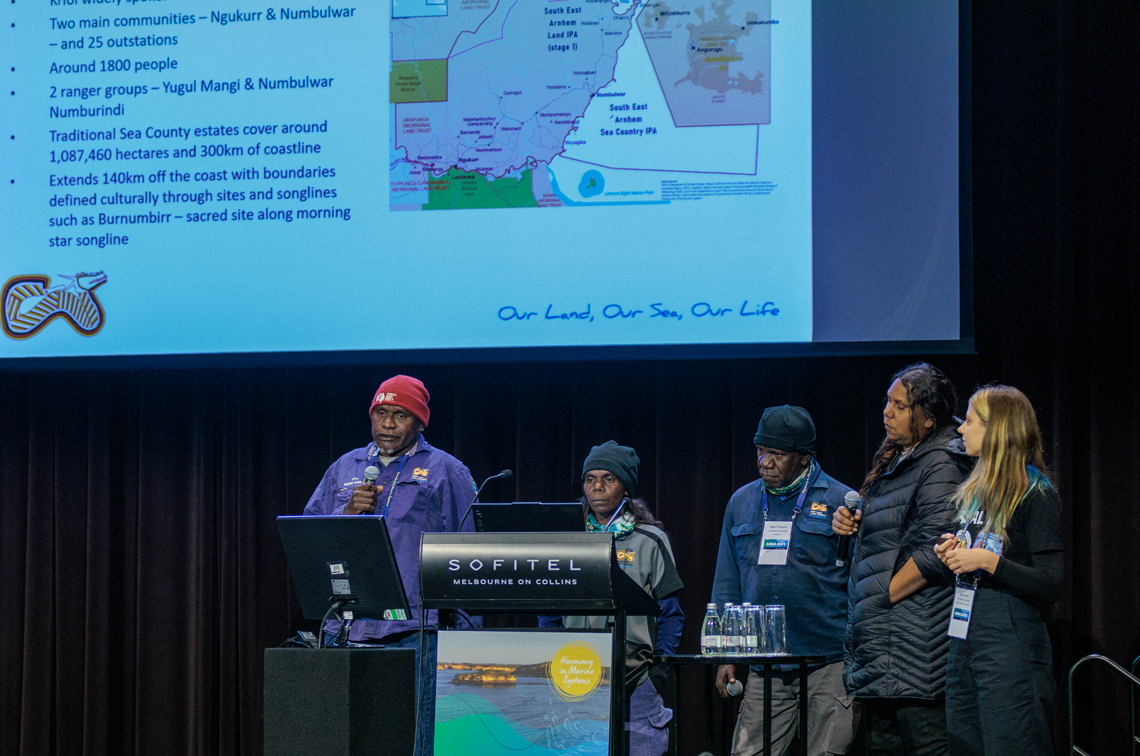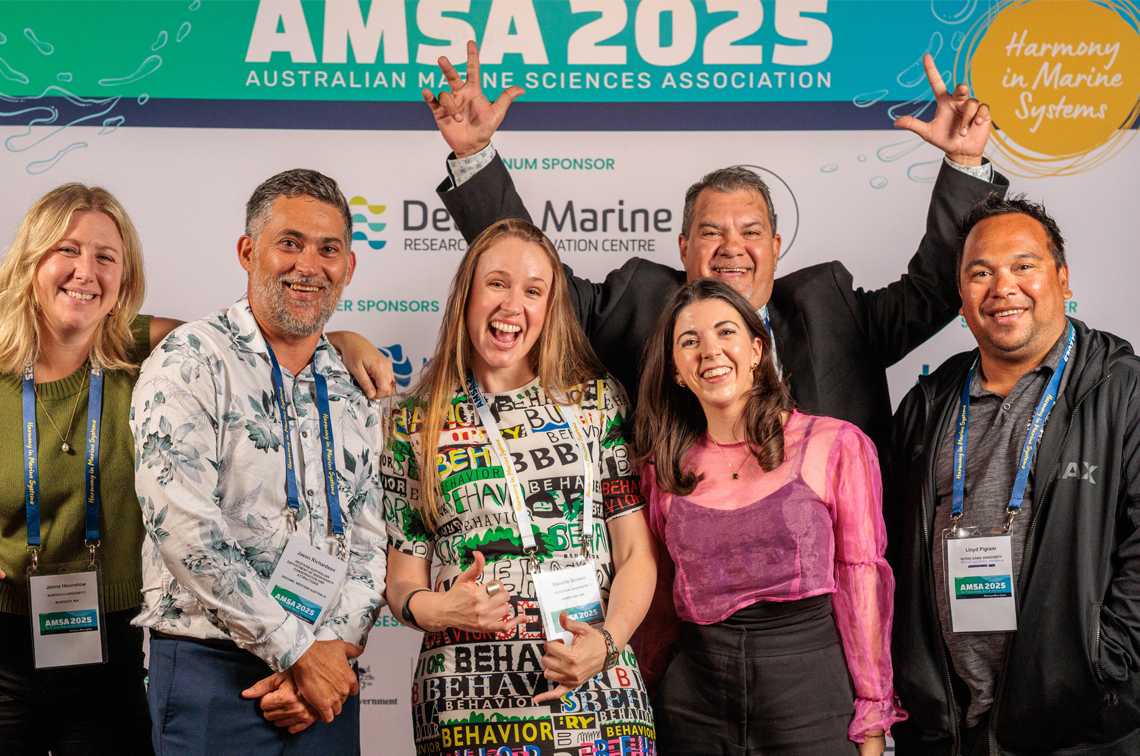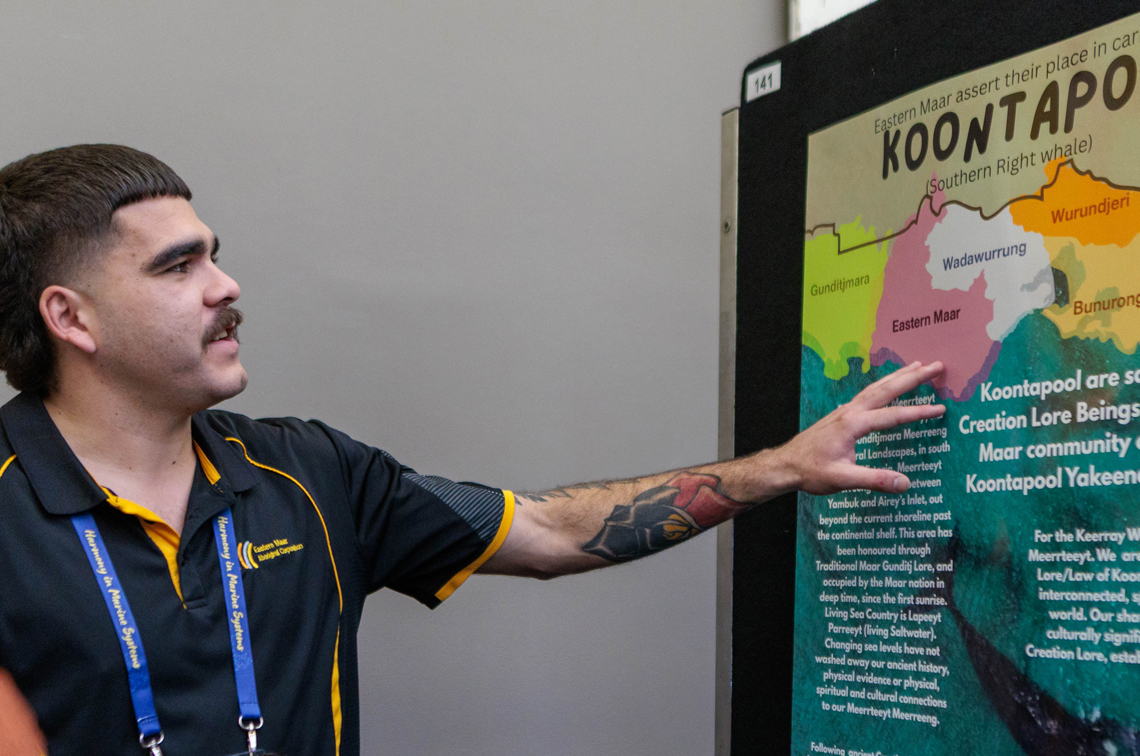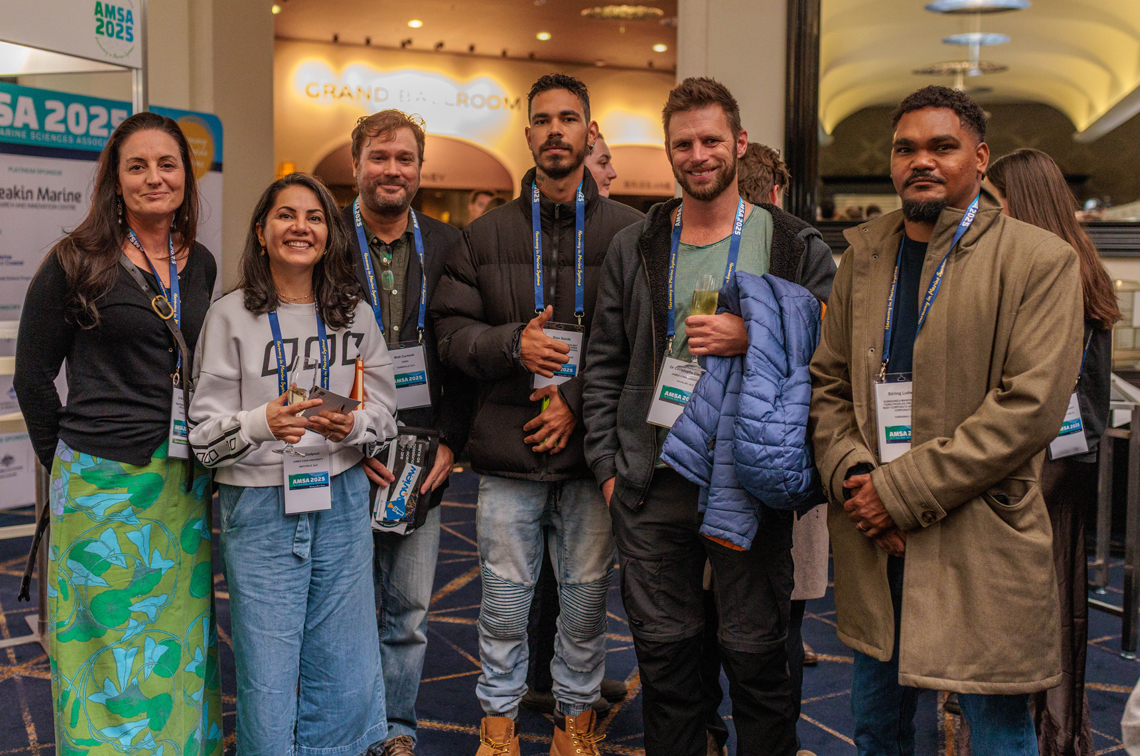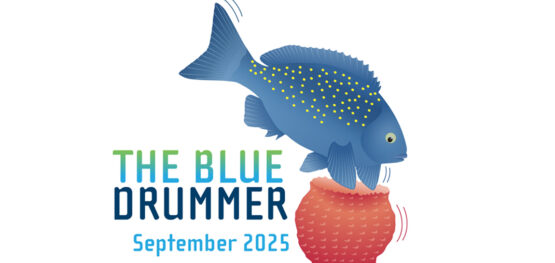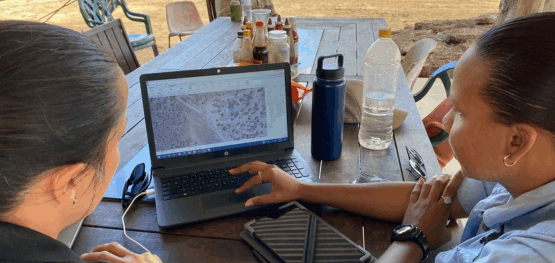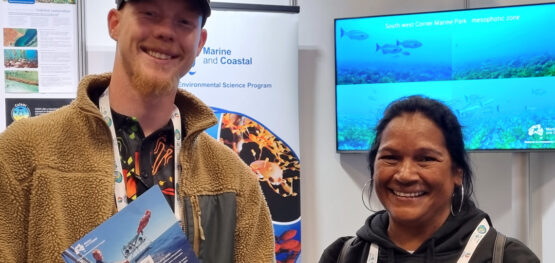Article
2 September 2025
A flourishing of Aboriginal and Torres Strait Islander participation was evident across the breadth of activities at this year’s Australian Marine Sciences Association (AMSA) 2025 conference.
Indigenous speakers and delegates participated in panel and plenary sessions, and led numerous presentations and posters at the Naarm (Melbourne) event in July.
“AMSA conferences have created a more inclusive and supportive environment for all to come together to have important conversations about land, sea and sky Country,” AMSA president, Dr Alicia Sutton, says.
“From an initial commitment to holding annual, dedicated Indigenous workshops, Indigenous participation and Indigenous-led initiatives have grown and cultural science and knowledge are now integrated throughout symposia.
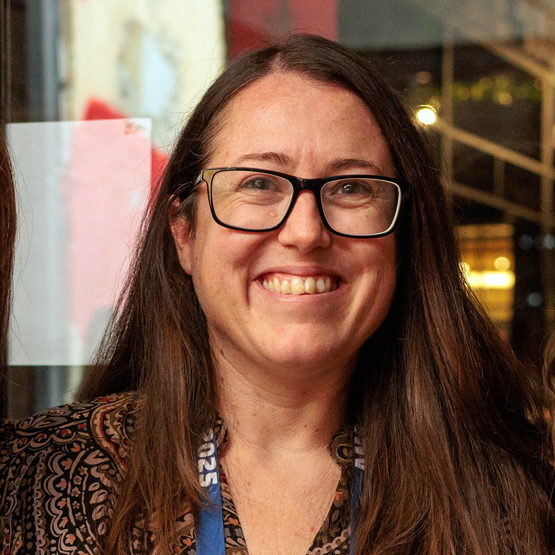
“The advice and support provided by the National Environmental Science Program marine hubs throughout the past decade has been instrumental in the growth of Indigenous inclusion and representation at AMSA conferences.”
AMSA President, Dr Alicia Sutton
The Marine and Coastal Hub continued its long-term conference sponsorship and organised the main Indigenous symposium: ‘Indigenous partnerships for better understanding and adapting to dynamic marine environments and sea Country’.
Indigenous hub researchers (Dr Chels Marshall, Kyah Chewying of CSIRO and Isaac Webb of the Undalup Association) chaired Indigenous symposium sessions, offering warm welcomes to delegates from all corners of Australia. Hub project leaders Dr Jodi Edwards and Dr Chels Marshall of University of Wollongong were two of five Indigenous members on the Conference Indigenous Working Group.
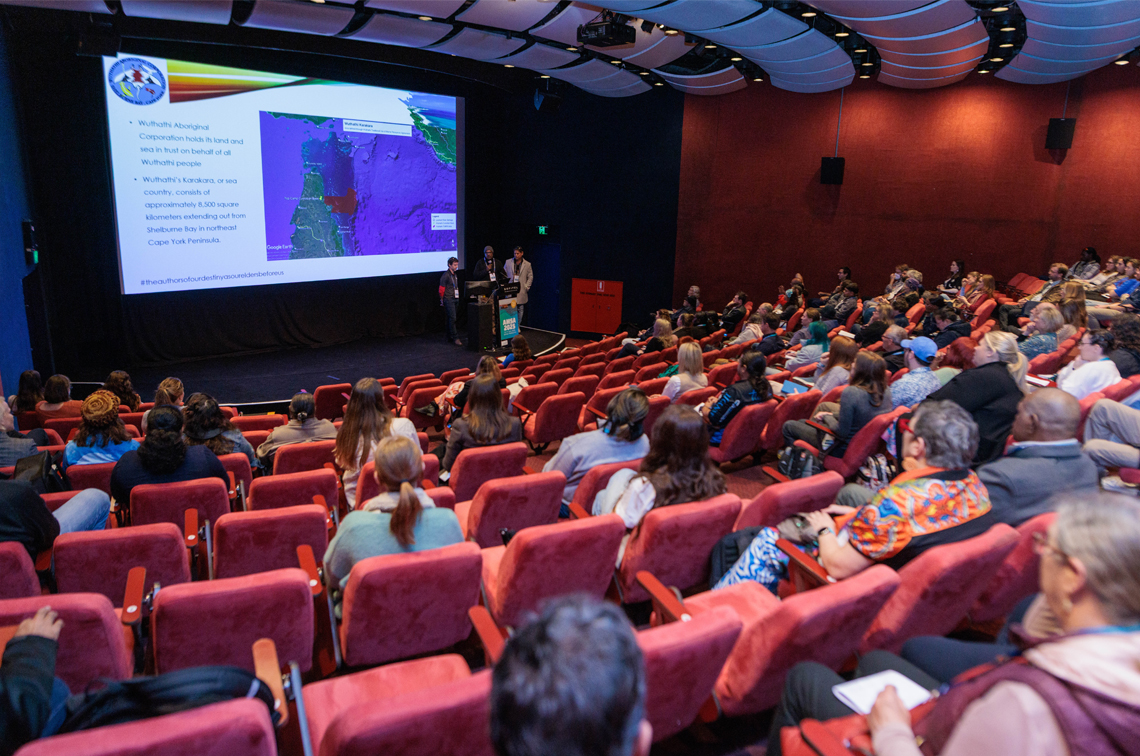
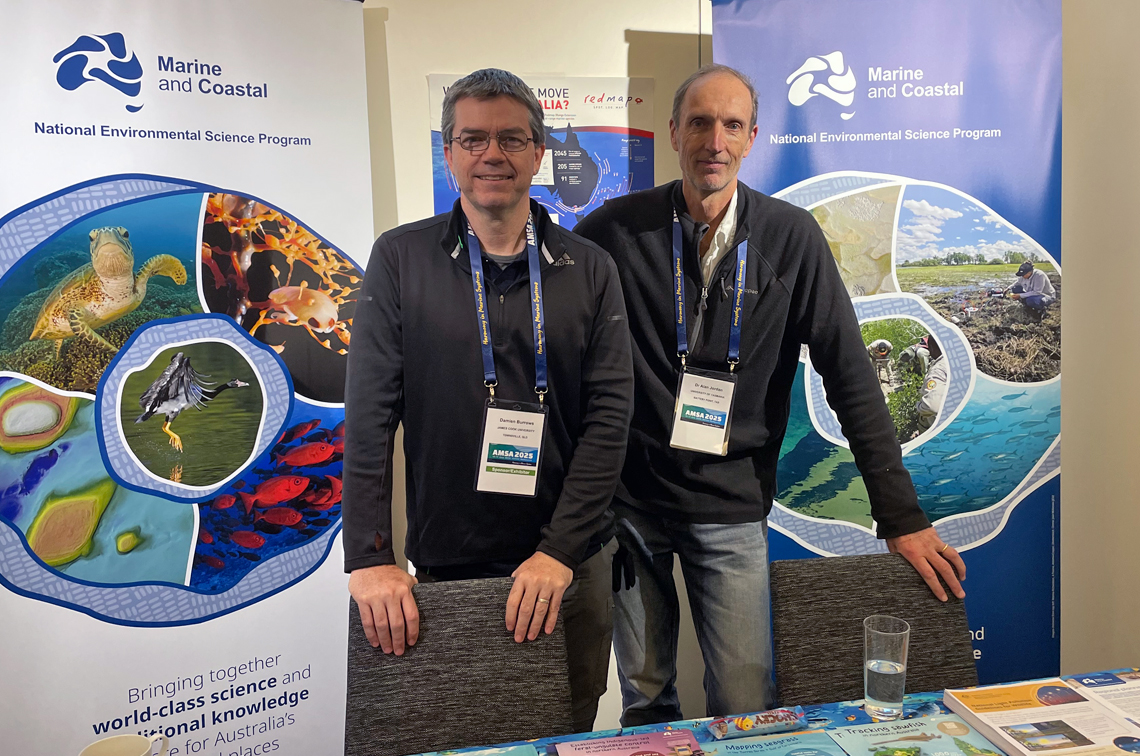
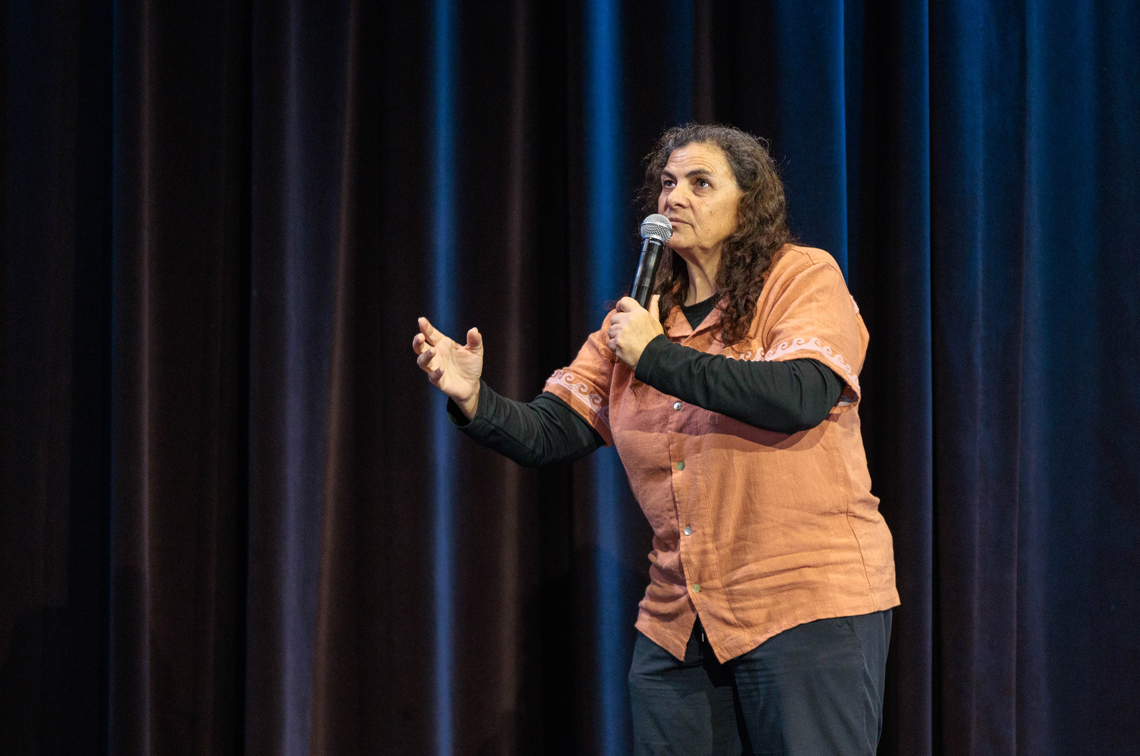
Caring for Country
The Indigenous symposium featured 23 presentations outlining Indigenous leadership and partnerships with a focus on caring for and connection to sea Country and sea-kin. The following presentations featured hub-funded research.
- Including Aboriginal women’s cultural ecological knowledges in mapping culturally important areas for sea-kin (Dr Jodi Edwards and Dr Chels Marshall, University of Wollongong). This presentation highlighted the critical role of Indigenous women in mapping culturally significant areas related to sea-kin. It emphasised the need to include Indigenous women’s voices not only in the mapping process, but also in broader conversations about marine conservation.
- Koodjal Biddi-wah Watturu Kaartadjin – Two-way sea Country knowledge to inform the management of the South-west Corner and Geographe Marine Park on Wadandi Country (led by Iszaac Webb, Wayne Webb and Toni Webb of Undalup Association on behalf of a team including University of Western Australia, Parks Australia and University of Tasmania.) In this presentation, Wadandi knowledge holders demonstrated how cultural and historical guidance on ecosystem components for the Geographe Marine Park on Wadandi country can provide important context for managing the cultural and ecosystem features within the Australian Marine Parks into the future. Hub researchers explained how this cultural guidance complements and supports place-based training using the hub Field manuals for marine sampling to monitor Australian waters.
- Tracking dugong movements in Yawuru Sea Country: a collaborative approach (led by Lloyd Pigram of The University of Notre Dame Nulungu Research Institute of on behalf of a team including James Cook University, Nyamba Buru Yawuru, Broome, Yawuru Parks joint management team, WA Department of Biodiversity, Conservation and Attractions Broome and Perth and Murdoch University). This presentation outlined a partnership between Yawuru Traditional Owners and hunters, the Parks joint management team and scientists that uses satellite and acoustic tags to document dugong movements in Yawuru Sea Country, providing valuable insights into habitat use during the dry-to-wet season transition. Genuine partnership, equity in science, and long-term, trust-based relationships involving engagement beyond tagging events were identified as key to maintaining Indigenous leadership in dugong research and conservation.
- Empowering Indigenous Australians to benefit from environmental research (Dr Teagan Shield of Curtin University and Dr Leah Talbot of the North Australian Indigenous Land and Sea Management Alliance Ltd). This presentation focused on the foundations of the National Indigenous Environmental Research Network, an initiative to empower Indigenous Australians to participate in, benefit from, and determine the environmental research that occurs on their Country.
- Caring for sea Country: co-designing seagrass mapping and monitoring in South East Arnhem Land (led by Numbulwar Numburindi Rangers and Yugul Mangi Rangers on behalf of a team including the Northern Land Council, Charles Darwin University and James Cook University). This presentation in Future seagrass symposium outlined large-scale seagrass surveys and mapping to support a monitoring program critical to managing the new South East Arnhem Land Sea Country Indigenous Protected Area. Indigenous Knowledge is being integrated with new technologies in a program that respects and reflects cultural values and empowers Indigenous rangers to lead the long-term care of seagrass meadows.
Excellence in Sea Country Award
Hub researcher Mibu Fisher of CSIRO received the AMSA Melissa George Excellence in Sea Country Award 2025. This award recognises the outstanding contribution or leadership potential of an Indigenous marine scientist, ranger, communicator or educator to advance marine science and knowledge in Australia.

